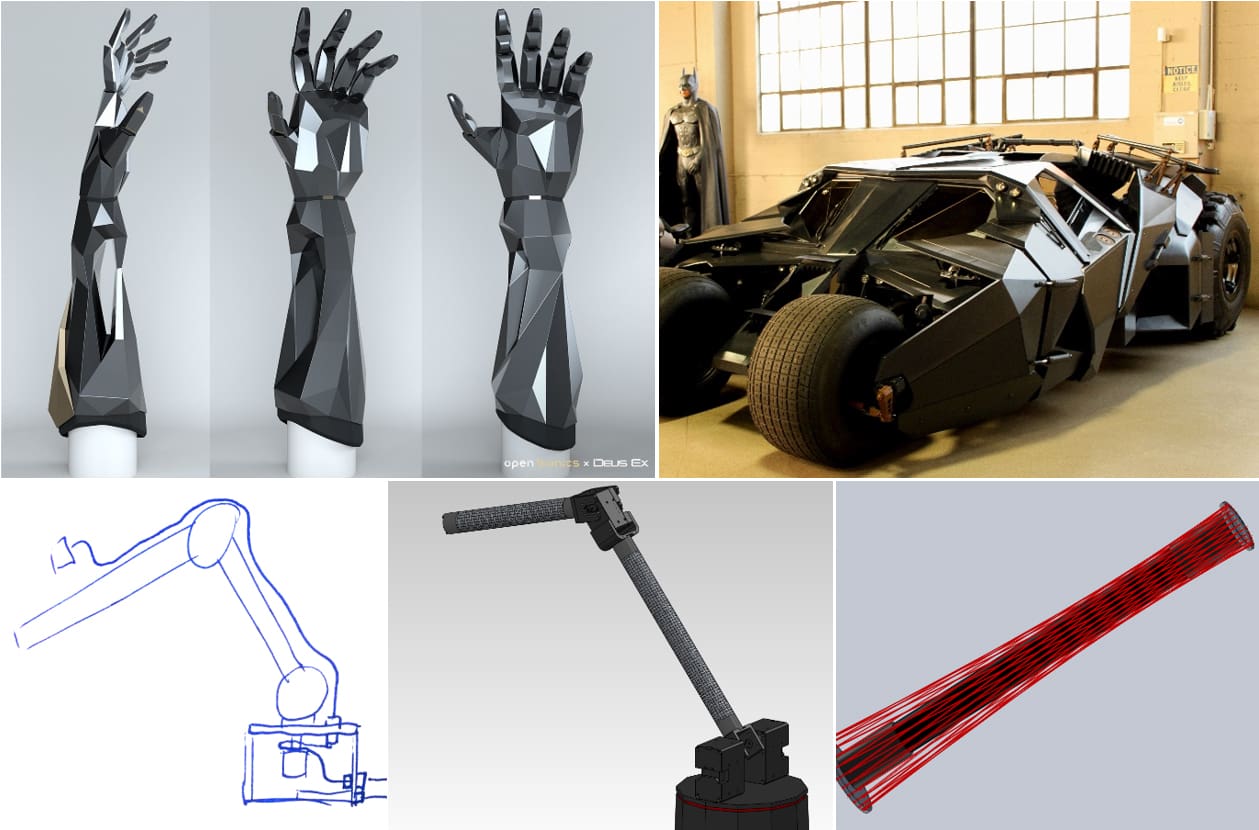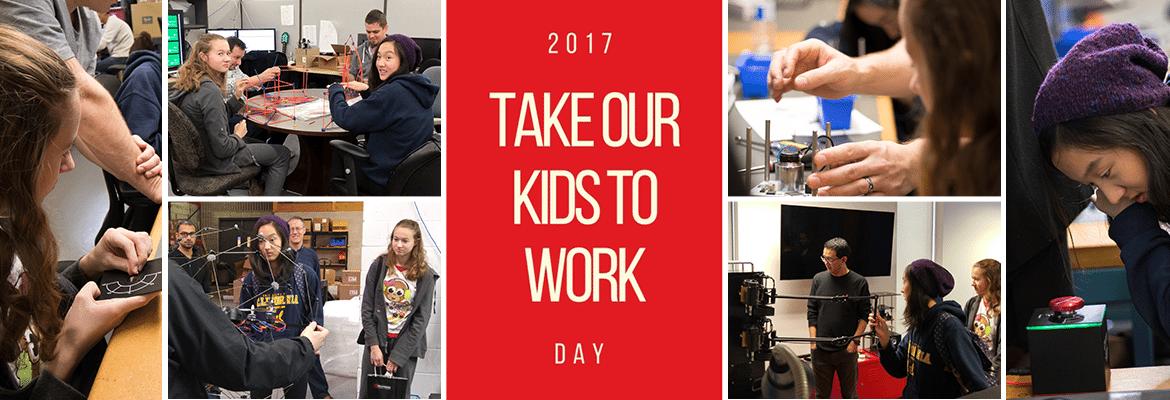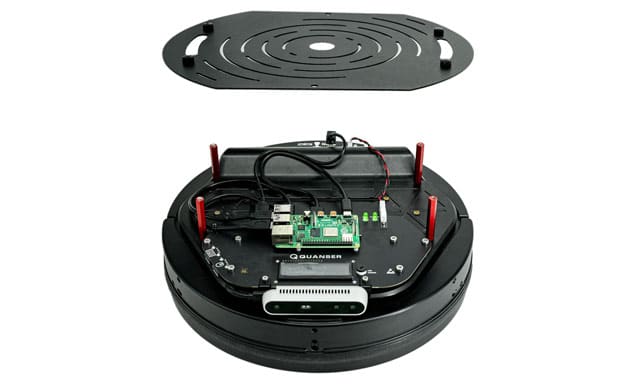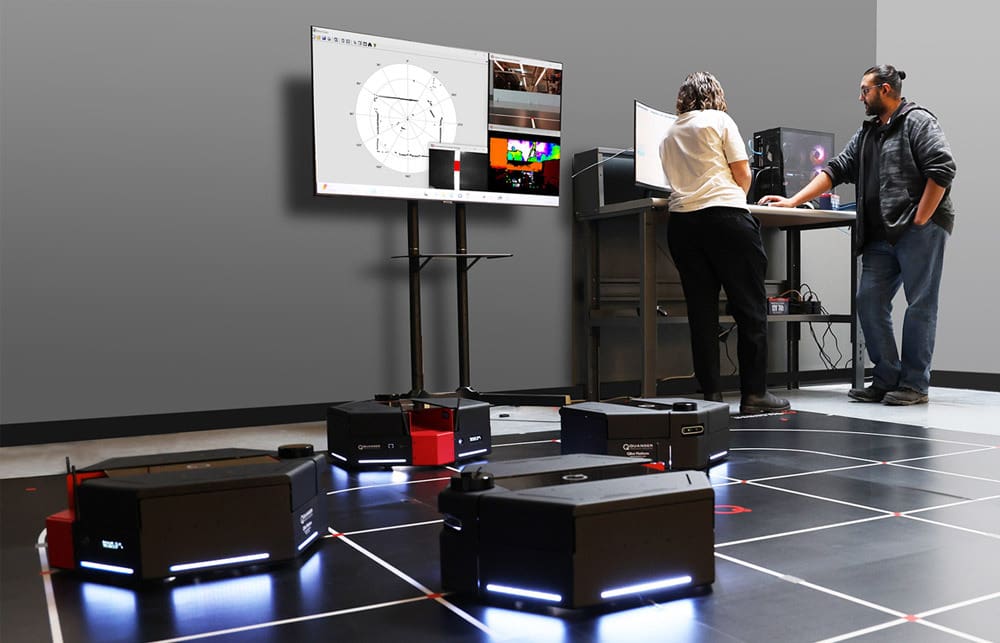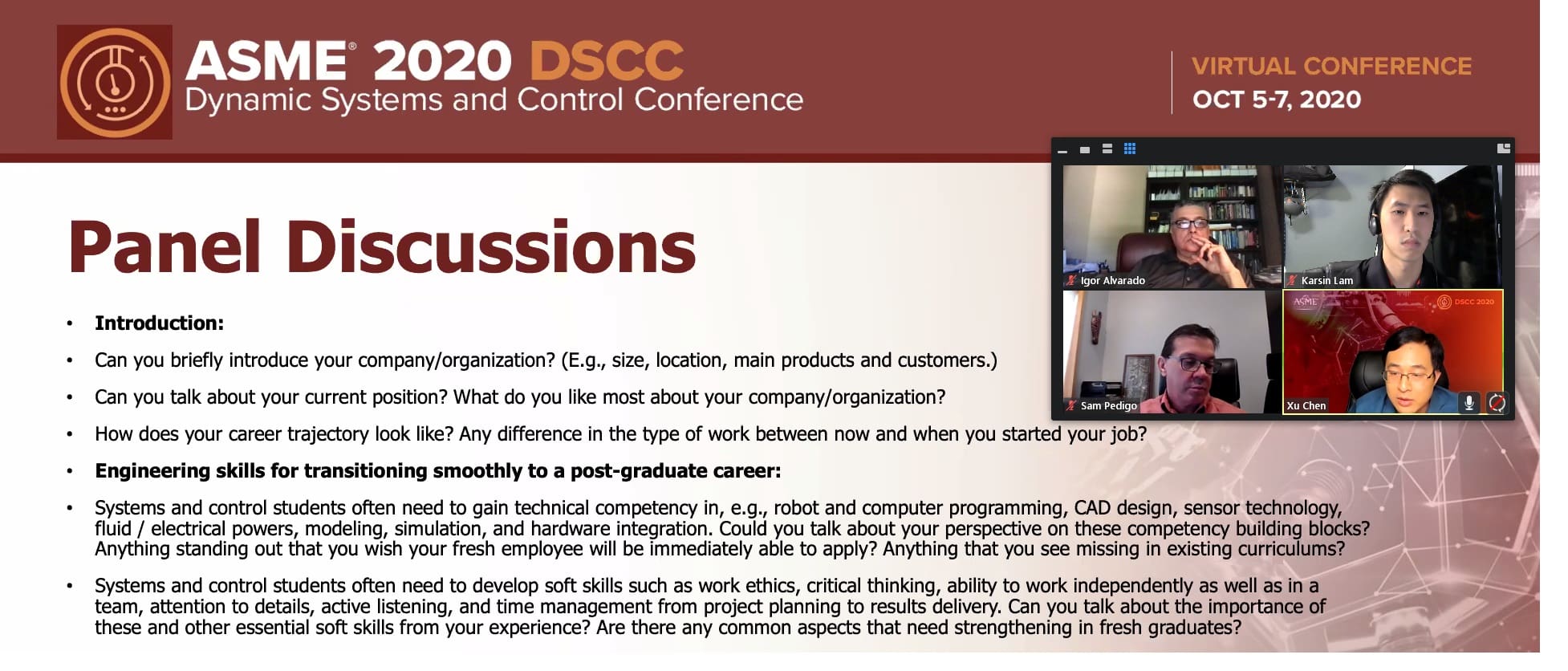
Early in October, I had an opportunity to speak at the ASME Dynamic Systems and Controls Conference, DSCC, at a Student Career Advising/Networking session. Alongside four other panelists working across multiple industries, we each shared our advice for students about to enter the workforce.
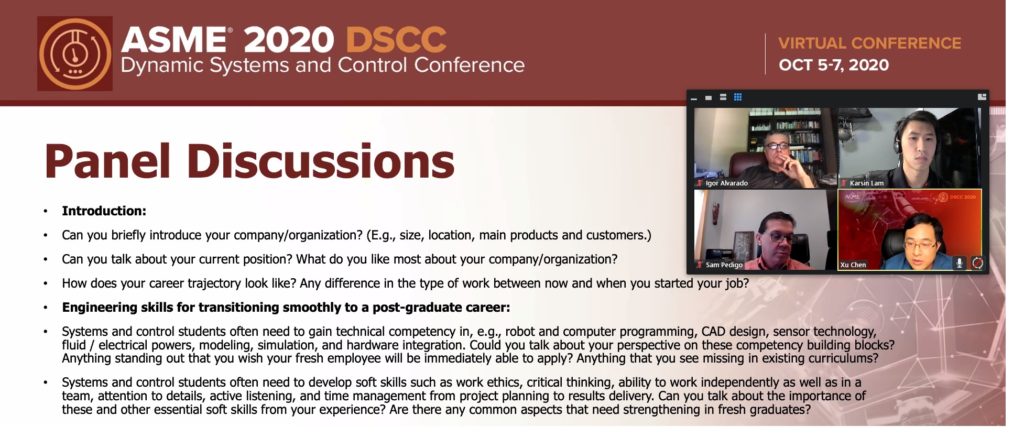
I would like to highlight three general pieces of advice: broaden your skillset outside of your stream, gain experience outside of class, and learn complementary skills. They shine a light on what companies want from their potential new hires. They also illustrate the gaps that the current education system can help fill to better prepare new grads.
Broaden Your Skills
In a post-secondary setting, students have access to a plethora of information that exists outside of their core classes. My fellow panelists suggested that students investigate possible electives that teach coding languages to broaden their coding ability. Or look for electives exploring newer trends like AI and machine learning which might not be covered in their standard courses. As more and more students graduate out of similar engineering programs from across the world, it becomes increasingly important to stand out. You can achieve that by seeking further education outside of the courses set for the student.
Get Experience Outside of Classroom
Our panelists also highlighted a gap in experience and practice new grads have. For CAD design, for example, experience and practice are necessary to become a good designer. Practice solving various design challenges, experience what bad designs are, what good designs are. Typically, the time and environment required to gain this experience are not enough in the classroom setting. Students can look for internship opportunities or join extracurriculars like Formula SAE, hackathons, or FIRST Robotics. Through these avenues, students can start practicing their craft with real-world problems and show potential employers proven skills.
Bring Complementary Skills
Something that students and even some employers overlook in resumes and job postings are complementary skills. One of the best examples would be an experience with Git for students looking to work in any software setting. Git proficiency often gets overshadowed by coding ability. But it can really make a student stand out above the other new grads with a similar software education. Something like Git is easily accessible for students to start using and building proficiency in. That is just one example. In every industry, there are various complementary skills that may not necessarily be covered in the classroom but would be a great addition to anyone’s resume that managers would appreciate.
In short, new grads should continuously look for opportunities outside of their core classes to broaden their skill set and gain experience. Building these skills will take time and effort but will pay dividends when job hunting. This advice also gives schools ideas for how they can develop their programs to provide their students with the necessary applicable skills and experiences for new grads to perform well in their respective industries.
